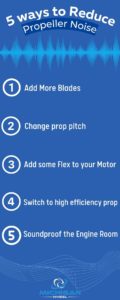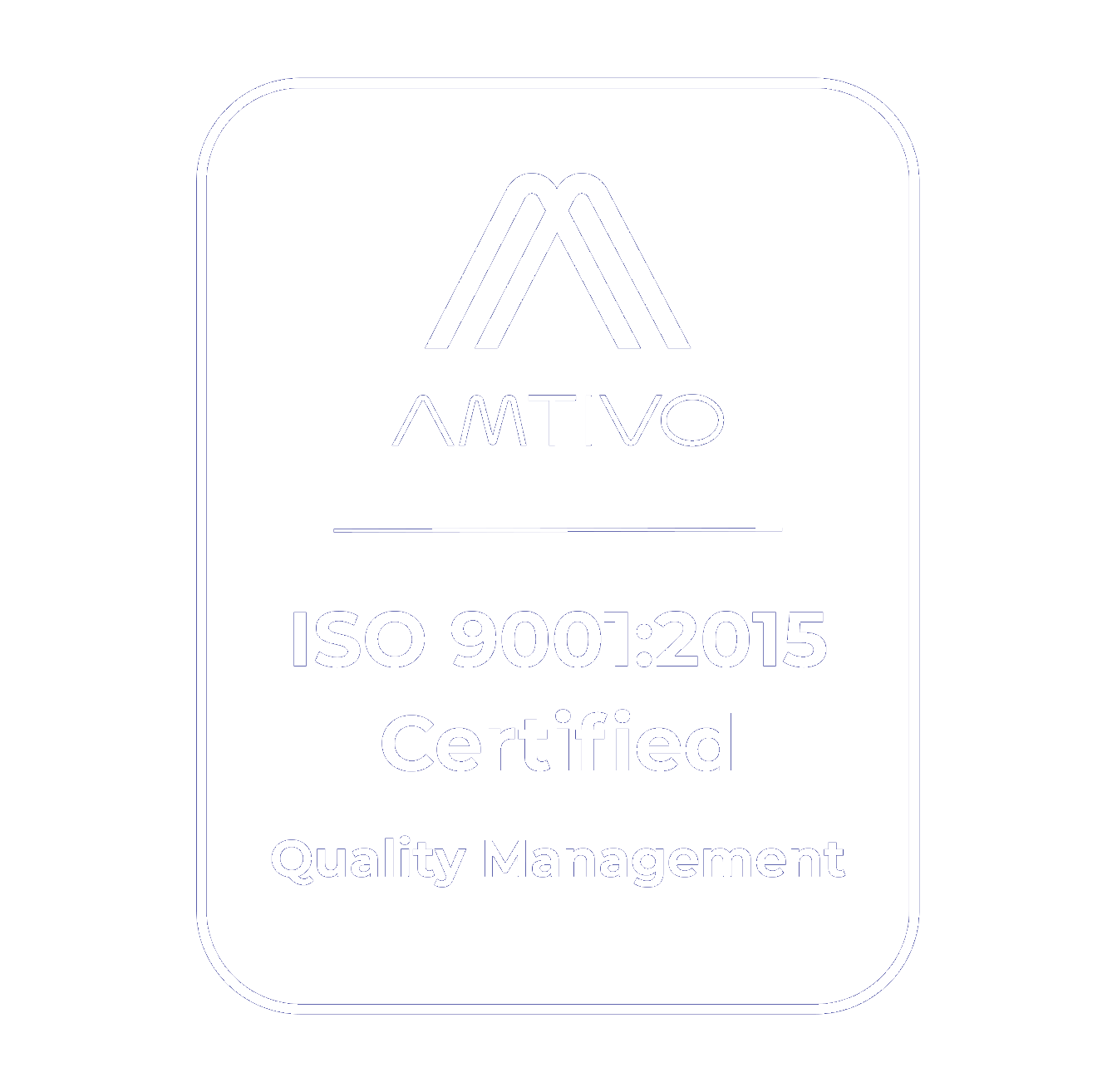Blogs
There’s nothing relaxing about a deafening rumble and loud rhythmic noises. Propeller noise levels will quickly ruin your trip on the lake with friends and family. Instead of screaming over the noise levels of your motor and prop, we have a few tricks you can try out for noise reduction.
In this guide, we’ll review how you can reduce boat propeller noise as well as discuss another big producer of noise: your motor. Don’t worry, you’ll get a few solutions for abating that noise level too.
What Causes Prop Noise?
Ship propellers, gears, and motors produce sound. The sounds created depend on a variety of factors including ship type, size, hull shape, propulsion system, and operating conditions. Unless close to a vessel, most of the sounds that ships and boats produce are low frequency and contribute to the ambient noise of the ocean. Studies have shown that marine mammals may alter their behavior in response to ship noise.
Every time the propeller blades move, the water around the blade area heats up and noise is created – a phenomenon that is called propeller cavitation. For boat lovers and marine life both, the underwater noise caused by cavitation is pretty undesirable. This makes more sense when you look at how a boat prop moves underwater. Beyond the regular “motion makes sound” part of physics, there’s a little more science at play here.
Propeller induced cavitation is the formation and rapid collapse of bubbles, and this is the main source of underwater sound produced by ships. This cavitation quickly changes the water pressure which turns into vapor as the bubbles collapse. Did you know you can boil water at room temperature if the pressure gets high enough? Essentially, this is what’s happening underwater as your prop blade tip slices through the water. As the pressure of the water changes you’re left with bubbles that implode all around the prop’s blades. These popping bubbles create a lot of noise that bounces off other components of the boat – the shaft, hull, and motor. You’re left with noise pollution and energy at the rear of the vessel as well as increased physical damage to the blade surfaces.
The International Maritime Organization (IMO) recommends that in propeller design, there should be effort put towards selecting the appropriate propeller diameter, blade number, and blade pitch, which all together can help reduce cavitation, and the noise that’s produced as a result.
Are You Sure It’s the Prop?
It’s easy to misidentify the noise that you hate, by the way. Some people think that they should blame the prop for the noise that their motor is making. Don’t forget, motors are really loud pieces of machinery.
Since they’re spinning around, dealing with loads and transferring a ton of power, motors are also prime suspects when it comes to noise. We’ll talk about how to fix this problem, too.
How to Quiet Boat Propellers

Without further ado, let’s talk about how to reduce propeller noise. Some of these solutions are easier than others and some work better than the rest. It’s up to you to find the solution that you like the most and try it out. At the same time, there’s nothing wrong with applying all of these fixes.
Add More Blades
We mentioned that your prop blades are slicing through water, dramatically changing the pressure of water, and imploding all of these little bubbles. The quick way to fix this problem is to simply add more blades to your prop.
The noise difference between a three-fin and five-fin propeller is dramatic, and it makes perfect sense. Each propeller blade is responsible for doing a certain amount of work. The fewer blades you have, the more work each one has to do.
If you’re looking for some quiet time on the water, we suggest swapping to a prop with more blades, that will allow for more propeller efficiency.
Change the Propeller Pitch
Another way to achieve a quieter ride is to adjust the pitch on your prop. If the props are parallel with the flow of water, then you’ll have less noise at the tail-end of the vessel.
Why? It all goes back to science. There’s less of a disruption to the water which equates to less vibration, fewer bubbles, and ultimately less noise.
It helps if you have props that have adjustable pitches. You can fine-tune this value until you minimize the noise. This optimization also helps to reduce your drag and results in a faster boat.
Swap to a High Efficiency Prop
There’s no other way to put it: a well-made prop is significantly quieter than a budget option. If you’re able to splurge for a more expensive prop, you’ll typically enjoy a quieter ride. Again, it has to do with minimizing the vibration and extra noise. High efficiency props are robustly made and will smoothly slice through the water.
In the world of boat noise, smooth is synonymous with quiet.
Soundproof the Engine Room
For larger crafts, you might be tired of a noisy engine room. Guests and employees might be complaining about noise in the hallways around your craft.
A vast majority of noise can be cut out if you soundproof the engine room. As we mentioned, engines are another example of noisy items when it comes to boats. It doesn’t matter how quiet the props are, an array of engines will still crank out a lot of noise.
We suggest using dense foam or caulk in doors, hatches, and bulkhead openings. It might also be a good idea to soundproof some of the neighboring rooms and hallways. The requirement of vents means that some noise will escape, but some soundproofing goes a long way for guests on your craft.
Add Some Flex to Your Motor
This is easier on an outboard motor but adding a little bit of flex can really help dampen some of the sound. If there’s a rigid connection point between your electric motor and boat, a lot of vibrations will go through your boat and rattle around. This makes a ton of noise that can be heard anywhere near the motor. A simple strip of flex hose is inexpensive and easy to install. Put this under your motor and then fasten the motor to the craft and see how much quieter your boat is.
For inboard motors, take a look at the mounts. You should consider putting some thick rubber on the top and bottom faces of the mounts. This will dissipate some of the vibration levels, reducing how much noise is created. Keep in mind, this won’t change the sound that your propeller creates. It will help with motor noise only.
Learn More from the Propeller Pros
With a quieter propeller and motor, you can truly enjoy the open waters. If you want more prop tips or hints from the propeller pros, reach out to Michigan Wheel. We’re here to give you the best boating experience possible. We have plenty of high-quality props for sale, and we’ll connect you to the perfect propeller.






